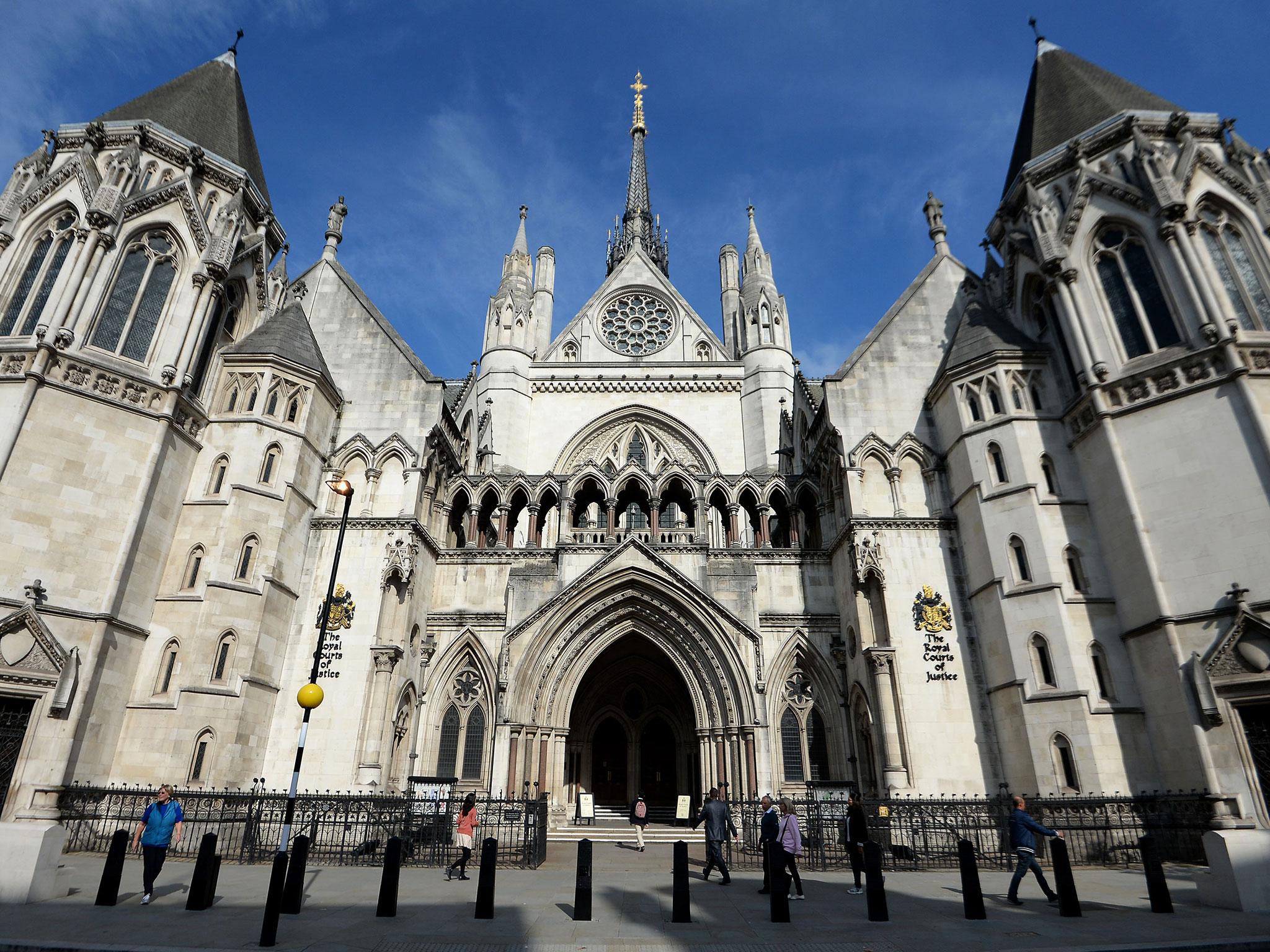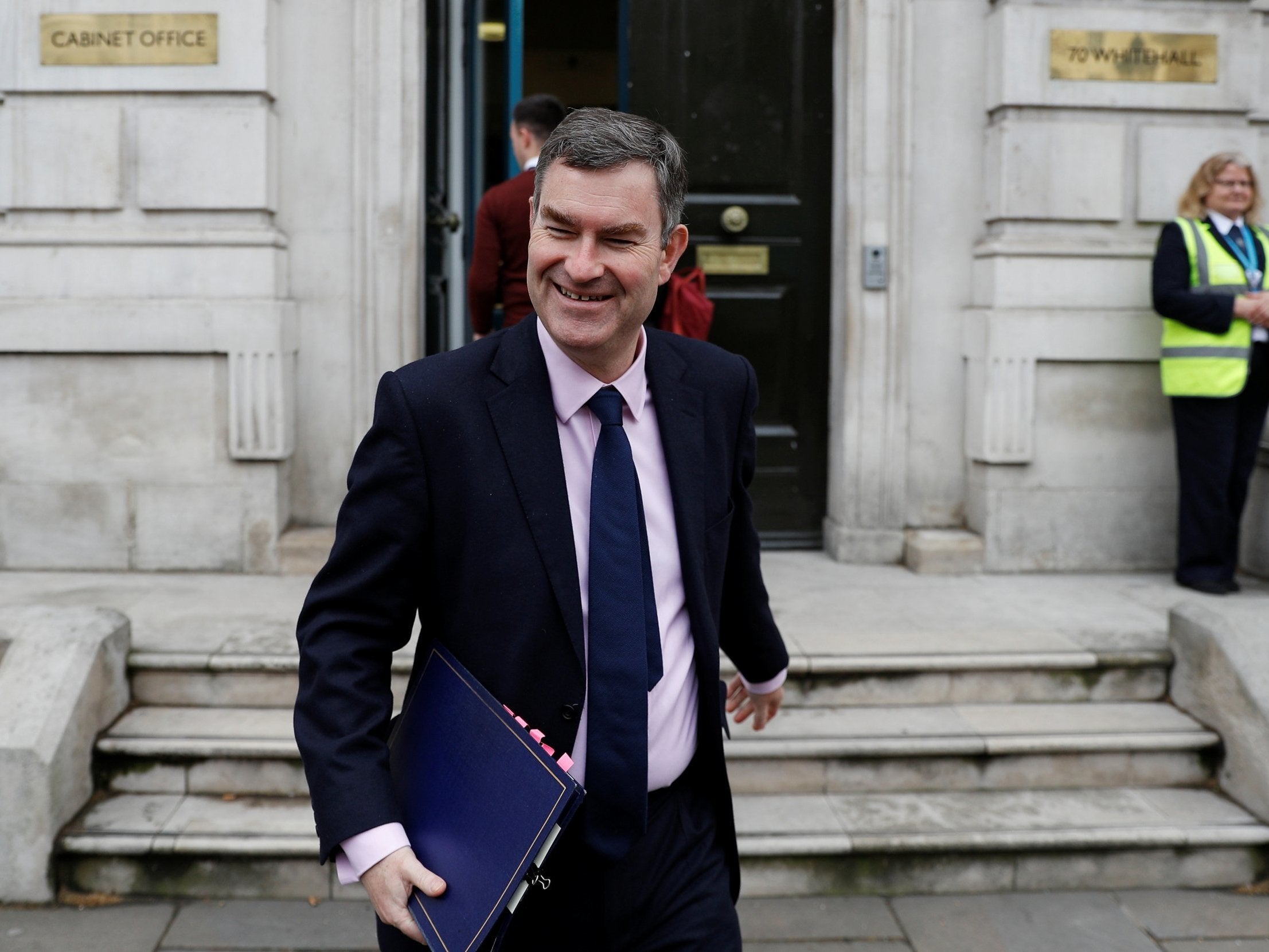High Court judges’ pay raised to £236,000 a year to fill vacancies having ‘serious impact’ on courts
Officials say increase needed to address ‘critical shortages’ of senior judges

Your support helps us to tell the story
From reproductive rights to climate change to Big Tech, The Independent is on the ground when the story is developing. Whether it's investigating the financials of Elon Musk's pro-Trump PAC or producing our latest documentary, 'The A Word', which shines a light on the American women fighting for reproductive rights, we know how important it is to parse out the facts from the messaging.
At such a critical moment in US history, we need reporters on the ground. Your donation allows us to keep sending journalists to speak to both sides of the story.
The Independent is trusted by Americans across the entire political spectrum. And unlike many other quality news outlets, we choose not to lock Americans out of our reporting and analysis with paywalls. We believe quality journalism should be available to everyone, paid for by those who can afford it.
Your support makes all the difference.The government has increased the pay of High Court judges by 25 per cent to almost £240,000 a year in a bid to fill vacant posts.
The Ministry of Justice said a “recruitment and retention allowance” increasing existing annual salaries from £188,901 was temporary, but admitted it could be in place for years until a legal case over pensions is solved.
It comes as criminal barristers decide whether to strike over low fees and the “broken justice system”.
The measure affects about a quarter of the 1,850 salaried judges in England and Wales, who are on a certain pension scheme, and only 60 qualify for the higher allowance.
Circuit and upper tribunal judges are seeing an increase of 15 per cent, from £140,289 a year to £161,332.
The government has also increased the salary of all members of the judiciary by 2 per cent in 2019/20 following a review suggesting that pay was driving recruitment issues.
More than 10 per cent of High Court judicial positions remain vacant, with the figure sitting at 20 per cent for the Chancery Division that handles major commercial cases.
The government said the vacancies were causing delays to care proceedings involving vulnerable children, immigration and asylum tribunals, commercial cases and seeing “victims of serious violence and sexual abuse having to wait longer to see the perpetrators brought to justice”.
David Gauke, the Lord Chancellor, said the temporary allowances would continue until long-term changes are made to judges’ pension schemes.
“It will enable us to continue to attract the brightest and best and prevent delays to potentially life-changing decisions,” he added.
“Our judges are a cornerstone of our democratic society – their experience draws billions of pounds worth of business to the UK, and without them people cannot get justice. We have reached a critical point. There are too many vacancies and with the retirement of many judges looming, we must act now before we see a serious impact on our courts and tribunals.
“Judges are in a unique position and once they join the bench are not permitted to return to practice. Without the best legal minds in these seats, everyone that uses our courts will suffer, as will our international reputation.”

The move is a response to a Senior Salaries Review Body (SSRB), which recommended of a 32 per cent permanent salary increase for High Court judges and 22 per cent hike for Circuit and Upper Tribunal judges covered by the new 2015 pension scheme.
The Ministry of Justice said the review identified “clear evidence of significant and growing recruitment and retention problems among the judiciary, particularly at senior levels”.
It found that, by joining the judiciary from private legal practice, some new judges took a pay cut of up to two-thirds.
In a joint statement, the Lord Chief Justice and Senior President of Tribunals said the pay increase would have “a significant effect on addressing critical shortages in the judiciary”.
They said that judges “do their utmost” to ensure cases are dealt with both promptly but are concerned “that there is an urgent need to recruit enough judges to tackle the workload in a sustainable way”.
“Judges are conscious that they are well paid compared to most in the public sector,” Lord Burnett and Sir Ernest Ryder added.
“They are continually finding ways to make the administration of justice more efficient both through the modernisation programme being run by HMCTS and more widely.
“We are pleased that the government are taking action to address the serious difficulties faced in recruiting to the judiciary.”
Join our commenting forum
Join thought-provoking conversations, follow other Independent readers and see their replies
Comments